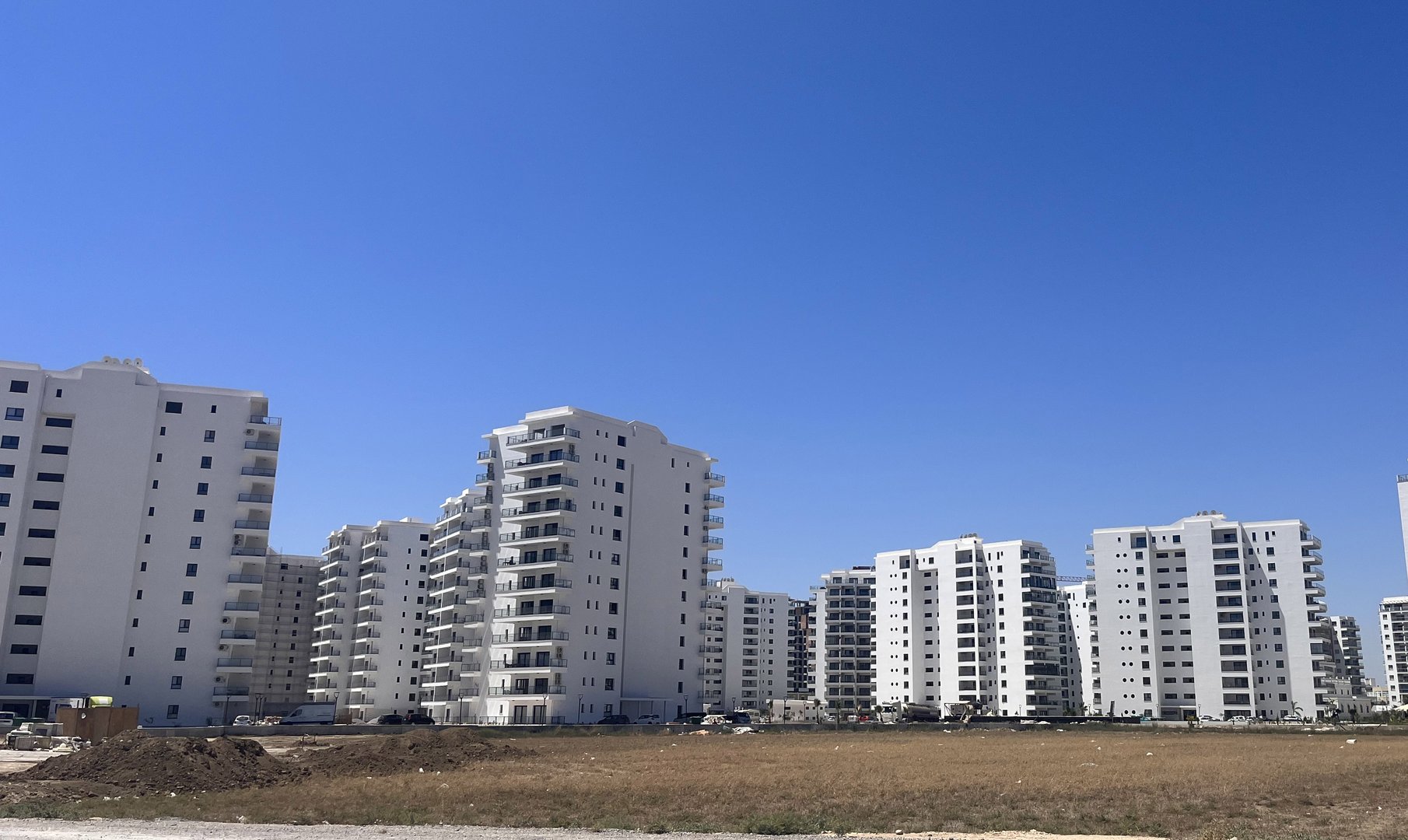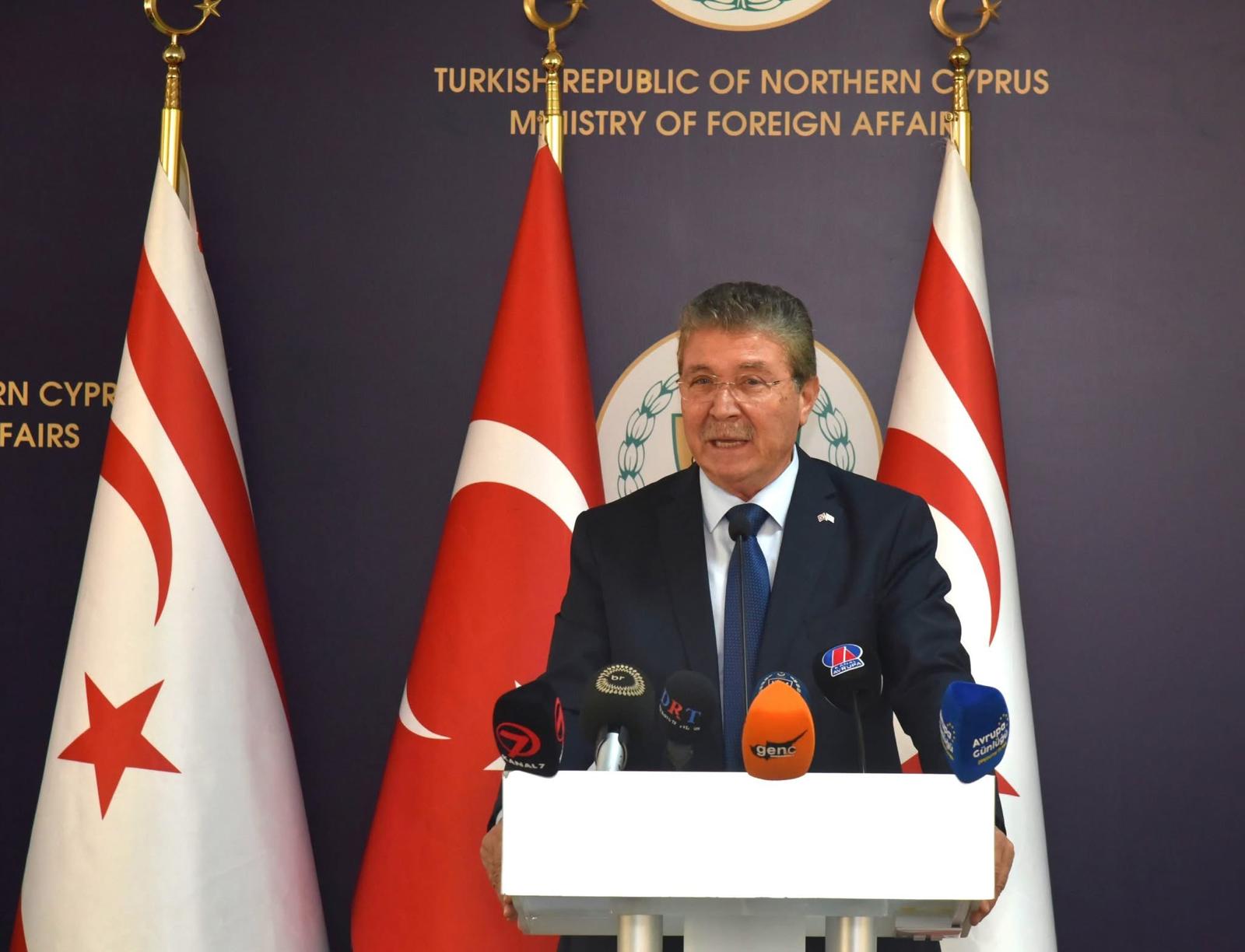The north’s ‘prime minister’ Unal Ustel on Sunday decried President Nikos Christodoulides’ “aggressive, terroristic attitude” on the matter of property, in light of recent arrests made by the Republic of Cyprus of people accused of selling Greek Cypriot-owned property in the north.
He said Christodoulides’ attitude is “obvious”, and that he “neglects the principle of responsibility in politics”, before going on to point out perceived hypocrisy on the matter on the part of the Greek Cypriot side.
“The Greek Cypriot leadership, which used to say years ago that ‘if we reach an agreement for a solution with the poor Turkish Cypriots, we will pay the economic price’, is now afraid of our economic standing,” he said.
Therefore, he said, “the attack on property rights launched against investors in the TRNC under the instructions and guidance of Christodoulides has been carried out for precisely this reason”.
“All Turkish Cypriots currently alive have been living with the Cyprus problem for as long as they can remember. They are suffering from a lack of solution to the Cyprus problem and from the unfair and unjust embargoes … The Turkish Cypriot side has always contributed to a solution by clearly stating what it wants,” he said.
“We have never flipped a negotiating table. When a solution was approaching, it was the Greek Cypriot side which flipped the table and took advantage of the opportunities that brought.”
He then promised that the ruling coalition he leads will not “sit on and watch from the stands”, and that it has “no hesitation in taking all the necessary steps with the support of our motherland, Turkey”.
As such, he said, Turkish Cypriots and businesses operating in the north should “be at ease”, before returning to the matter of the Cyprus problem at large.
“Sovereign equality and equal international relations and a two-state solution which follows are not obstacles to a solution, but on the contrary, support for it,” he said.
“In inter-communal talks, the Greek Cypriot side tries to defend its superiority by asking the outside world how equality can be achieved between numerically unequal parties, based on population differences. However, before a two-state solution, negotiations based on two states feature negotiations between equals and are more suitable for any kind of egalitarian solution.”
On this point, he added that “if population and not statehood were of primary importance, there would be no equality between countries with very small populations and those with very large populations in the most important decision-making bodies and mechanisms in the European Union”.
He then said his ruling coalition is “closely and contributorily interested in the solution of the Cyprus problem”.
“The Turkish Cypriots did not kneel while going through very difficult times between 1963 and 1974, and will not kneel now, instead walking towards much better days and the future under the roof of the TRNC,” he said.
“We will not be among those who turn a blind eye to injustice, nor will we remain silent against what is being done. We will be on the side of justice and human rights.”

Earlier this week, government spokesman Konstantinos Letymbiotis had insisted that the arrests are not political in their nature, telling journalists that “the Republic of Cyprus is acting within the framework of the rule of law, and the arrests for the usurpation of property concern the protection of basic human rights”.
Then asked whether it would be better for there to be a moratorium on such prosecutions so that they do not “come at the expense of talks on the Cyprus issue”, he said that “impunity for violations of property or human rights cannot be a condition, inside or outside of quotation marks, for talks or for an alleged indication of goodwill”.
However, many have not been convinced by Letymbiotis’ insistence.
Turkish Cypriot opposition political party the CTP’s foreign relations secretary Fikri Toros told the Cyprus Mail that Turkish Cypriots have been rendered “anxious, intimidated, and threatened” by the arrests.
“These feelings are reviving previous traumas experienced between 1963 and 1974,” he told the Cyprus Mail, adding that Turkish Cypriots “were left with no choice other than having the use of the properties abandoned by Greek Cypriots in one way or another”.
He added that the arrests are “clearly a political decision taken by the Greek Cypriot administration to inflict inhibition aimed at the impediment of economic development”, something he said will “ultimately lead to a further isolation of Turkish Cypriots, to the point of suffocation”.
He went on to say that the ongoing arrests and court cases have “toxified the political climate on our common homeland”.
Christodoulides had last week insisted that the arrests “will certainly not stop, no matter what Tatar says”, adding that “illegality cannot be justified in any way”, but also somewhat distanced himself from the arrests, insisting that “we do not interfere in the judiciary”.
Two Hungarian nationals were handed prison sentences over the matter last month, with the pair having admitted to promoting and advertising the sale of houses near Kyrenia on the internet.
Meanwhile, the case of a German national who reportedly spoke about selling property in the north to Elam MEP Geadis Geadi during a flight to Larnaca is ongoing and arrest warrants have been issued for four Turkish nationals in connection with developments in the Famagusta district village of Lefkoniko.






Click here to change your cookie preferences